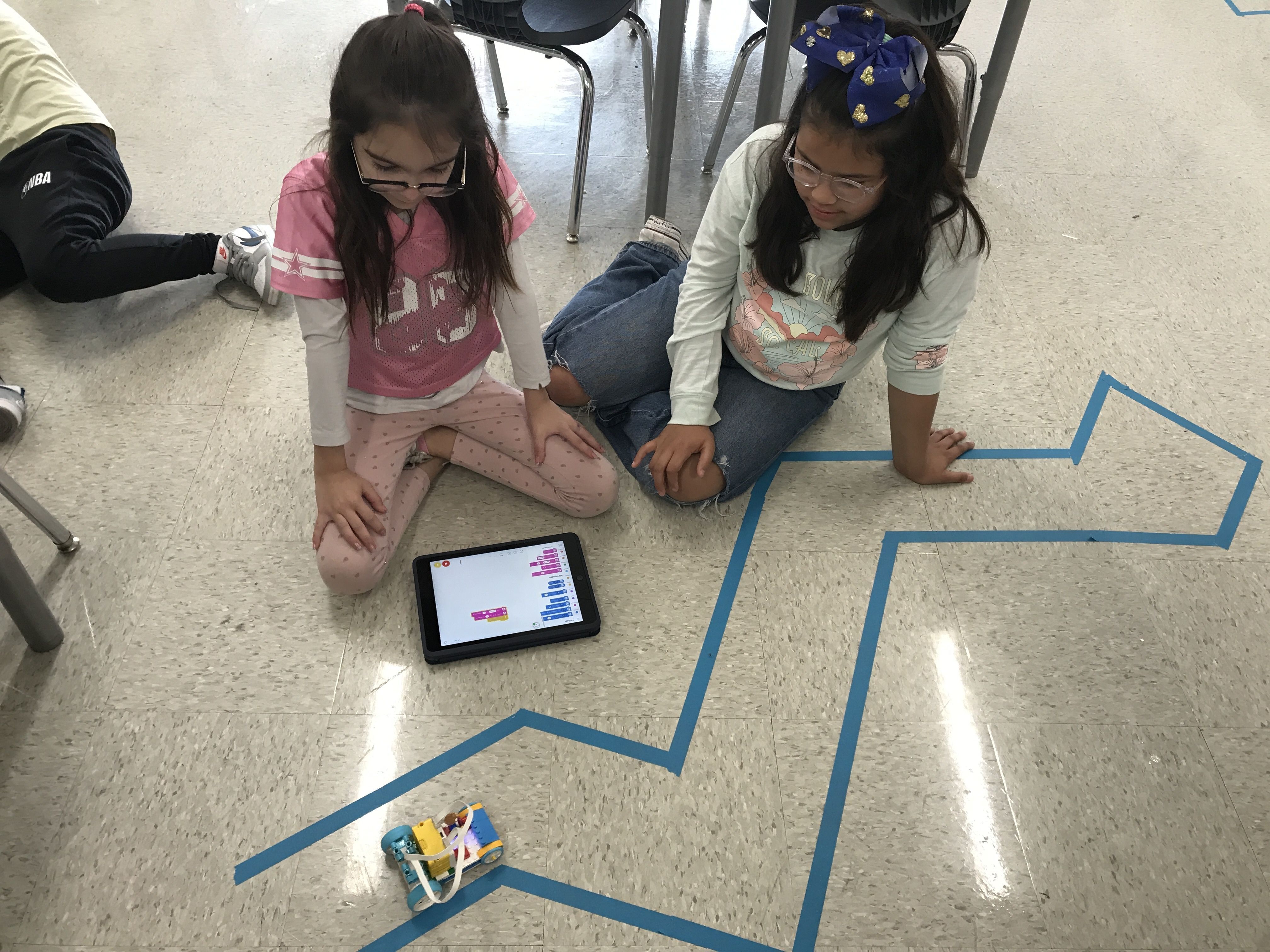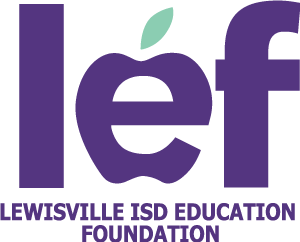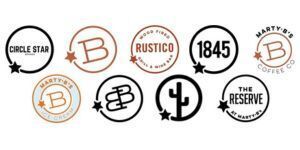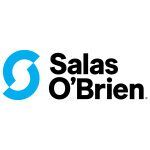
COVID-19 changed numerous aspects of the public-school experience. At Creekside Elementary School, the coding club was no longer possible. As time progressed, campus robotics equipment became obsolete. Creekside’s Gifted and Talented program teacher Erin Swiedom sought to change this by applying for an LEF grant to purchase robotics equipment for her campus.
“By receiving this grant, I was able to reimplement robotics club on my campus,” Swiedom said. “Just by offering the club to all grade levels K-5, I was able to serve 290 students out of our 387 student population!”
Swiedom found that robotics gave students a hands-on way to learn various life skills.
“Coding and robotics are an excellent way to teach students the problem solving and critical thinking skills that are necessary to make them thrive in their future endeavors,” Swiedom said. “By learning to code and problem solve with friends, it will make the learning meaningful and fun. We live in a digital world where creation and technology drive progress. The earlier we put tools in their hands and teach them these skills, the better off they will be.”
Experience in fields such as STEM, coding, and robotics is highly valuable. Coding, when coupled with what students learn in core subjects, can open numerous doors to success.
“Robotics and coding is not something that general education teachers have time to squeeze into their already packed schedules, even though it is a necessary problem solving skill,” Swiedom said. “By having these resources on campus and being able to take robotics lessons into the classroom and offer a robotics club, students are still getting the exposure they need without sacrificing any of the other important skills they are learning.”
Students can access the robotics equipment in several ways beyond participating in the robotics club. GT students used the robots regularly through design challenges. Swiedom offered in-class lessons teaching both students and teachers how to utilize the coding equipment. Once teachers became familiar with the equipment, they could check out the materials to conduct robotics lessons in their own classrooms. The robotics equipment also functioned as a behavioral incentive, encouraging students to alter negative behavior to gain more time exploring the robotics and coding equipment. Swiedom also used robotics kits in the Makerspace and ThinkLab to engage more students.
Though the robotics program already serves about 75% of the students on her campus, Swiedom is eager to reach more students in the years to come.
“I would like to train our campus teachers to use the kits so they can check them out from me and use them with their students as well,” Swiedom said. “I will continue Robotics Club, it went extremely well how it was set up this year. I plan to increase the number of times I take the kits into classrooms for push in lessons as well. I will also continue the incentive program. Students have worked really hard and met a lot of goals so they can come tinker with the robots.”
As students continue exploring coding and robotics, Swiedom hopes to see benefits beyond an increased knowledge of coding.
“I want to increase awareness of the importance of coding and its link to problem solving,” Swiedom said. “My hope is that with regular exposure to robotics and coding, we will see improved academics, increased problem solving skills (using the skills and strategies they have learned through coding and applying them to other areas), and increased creative collaboration.”
After just one year, Swiedom noted the positive impact of the robotics equipment.
“This grant has put a thinking skill back into our school that was missing for 3 years,” Swiedom said. “It has been amazing to see the smiles and the thinking that each student has experienced thanks to this opportunity, that is the success. Students approach me in the halls regularly asking when they can come back to robotics. I can't wait to expand the program next year. Thank you so much for making this happen for our students. We are forever grateful!”
Swiedom is eager to continue teaching students about coding, problem solving, and collaboration using the equipment provided by her LEF grant.



























